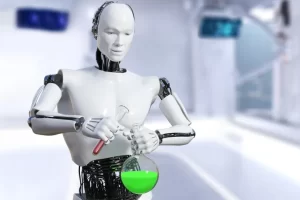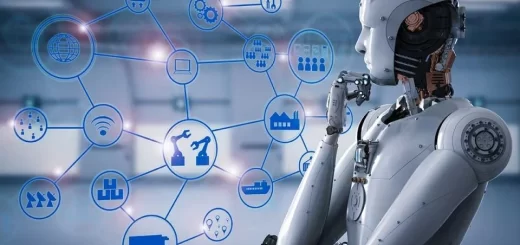Importance and risks of Science and What is the role of science in our daily life?
Science helps us grow more food with fewer resources through techniques like genetic modification and sustainable farming practices. From airplanes and cars to subways and bicycles, all modes of transportation rely on scientific principles.
Importance of Science
Science is the bedrock of our modern world. It’s a systematic process of inquiry that unravels the mysteries of the universe, from the tiniest atom to the vast expanse of space. Science plays a fundamental role in shaping our world and continues to be a driving force for progress and innovation.
Vaccines, antibiotics, and medical imaging technologies are all thanks to scientific advancements. Early diagnosis and treatment of diseases have increased life expectancy. Our ability to connect with others across the globe is thanks to scientific advancements like satellites and fiber optics.
Science has given us countless inventions that make our lives easier. From smartphones and computers to transportation and appliances, science fuels technological innovation that improves our daily routines. The development of new materials like Kevlar and Teflon has revolutionized many industries.
Through scientific exploration, we’ve gained knowledge about weather patterns, natural disasters, and the composition of our planet. This understanding helps us predict and prepare for challenges.
Our ability to connect with people across the globe through phones, the internet, and video calls is all thanks to scientific advancements. Cars, airplanes, and bicycles are all products of scientific principles like physics, engineering, and materials science. Modern farming techniques, fertilizers, and food preservation methods all rely on scientific knowledge.
Science is used to explore uncharted territories, both literally and figuratively. This could involve sending probes to distant planets, venturing into the deepest parts of the ocean, or delving into the mysteries of the human brain. Discoveries push the boundaries of our understanding and lead to further scientific exploration.
Science focuses on developing new technologies, products, and processes to address human needs and challenges. From medicine and engineering to agriculture and communication, Science provides a framework for solving problems. By gathering data, testing hypotheses, and refining solutions, scientists can tackle issues like climate change, food security, and disease outbreaks.
Scientific advancements drive progress and innovation across all fields. From the development of life-saving vaccines to the creation of sustainable energy sources, Science is a powerful tool for both understanding and shaping the world around us. It allows us to quench our thirst for knowledge, solve complex problems, and create a better future for ourselves and generations to come.
Scientists use the scientific method, which involves observation, experimentation, and analysis, to learn about the natural world and how it works. Scientific knowledge is constantly applied to develop new technologies and solutions to real-world problems
Physics helps us understand the fundamental laws of nature, like gravity and electromagnetism. Chemistry explains how matter is structured and how elements interact with each other. Biology explores life on Earth, from the cellular level to ecosystems. Astronomy studies the universe beyond our planet, including stars, galaxies, and black holes.
Risks of Science
While science offers undeniable benefits, it’s not without risks. Scientific discoveries can be used for destructive purposes. Nuclear weapons, chemical warfare, and some aspects of biotechnology raise ethical concerns. Our dependence on fossil fuels and industrial processes contributes to environmental pollution and climate change.
Balancing scientific progress with environmental sustainability is crucial. Scientific research, especially in fields like genetics, can raise ethical issues. Informed consent, data privacy, and responsible use of scientific knowledge are important considerations.
Environmental Impact
- Pollution: Industrial processes and technological waste can contaminate air, water, and soil pollution.
- Climate change: Some scientific advancements, particularly in energy production and transportation, contribute to greenhouse gas emissions and climate change.
Social and Ethical Concerns
- Dependence and addiction: Overreliance on technology can lead to social isolation and addiction.
- Privacy concerns: Advancements in data collection and analysis can compromise personal privacy.
- Ethical dilemmas: Scientific breakthroughs, such as genetic engineering and artificial intelligence, raise complex ethical questions.
- Technology can be used for harmful purposes, such as cybercrime, surveillance, and the development of weapons.
Health Implications
- Physical health issues: Sedentary lifestyles promoted by technology can contribute to obesity and other health problems.
- Mental health concerns: Excessive screen time and social media use have been linked to anxiety, depression, and sleep disturbances.
- Excessive screen time and sedentary lifestyles associated with technology can lead to health problems.
- Mental health: Social media and online interactions can contribute to anxiety, depression, and loneliness.
- Unintended consequences: Some scientific advancements, like certain medications or medical procedures, can have unexpected side effects.
Economic and Social Disruption
- Job displacement: Automation and artificial intelligence can lead to job losses in various sectors.
- Economic inequality: The benefits of scientific advancements may not be distributed equally, leading to increased economic disparities.
Finding the Balance
Science is a powerful tool, and like any tool, it can be used for good or bad. The key is to be aware of the risks and implement safeguards. Public discussion and ethical guidelines can help ensure scientific research is conducted responsibly. Encouraging a basic understanding of science empowers individuals to make informed decisions about scientific advancements.
Implementing regulations and oversight can help prevent the misuse of scientific knowledge. By fostering a responsible approach, we can harness the immense potential of science for a better future.
Science categories
Science is all around us, and its influence can be broken down into two main categories:
- Pure science (Basic Science): This is the pursuit of knowledge for the sake of understanding the universe and how it works. scientists are driven by curiosity and a desire to unravel the fundamental principles that govern everything from the tiniest atom to the vast expanse of space. Examples: Research in physics, chemistry, biology, geology, and astronomy all contribute to our basic scientific understanding. Through research and experimentation, scientists build up a body of knowledge that helps us explain natural phenomena.
- Applied Science: This is the practical application of scientific knowledge to solve problems and create useful technologies. In applied science, the focus is on using what we know from basic science to develop new things or improve existing ones. Examples: Engineering, medicine, agriculture, computer science, and materials science all rely on applied science.
You can follow science online on YouTube from this link: Science online
You can download the application on Google Play from this link: Science online Apps on Google Play
Science advantages, disadvantages, use and abuses of science in different fields
Advantages of science in our daily life
Antibiotics advantages, disadvantages, resistance and use
Computers in Business uses, advantages and disadvantages
Artificial intelligence in transportation advantages, disadvantages and applications
Nuclear weapons structure, types and harmful effects
Air pollution causes, types, effects, solutions and How to prevent air pollution


